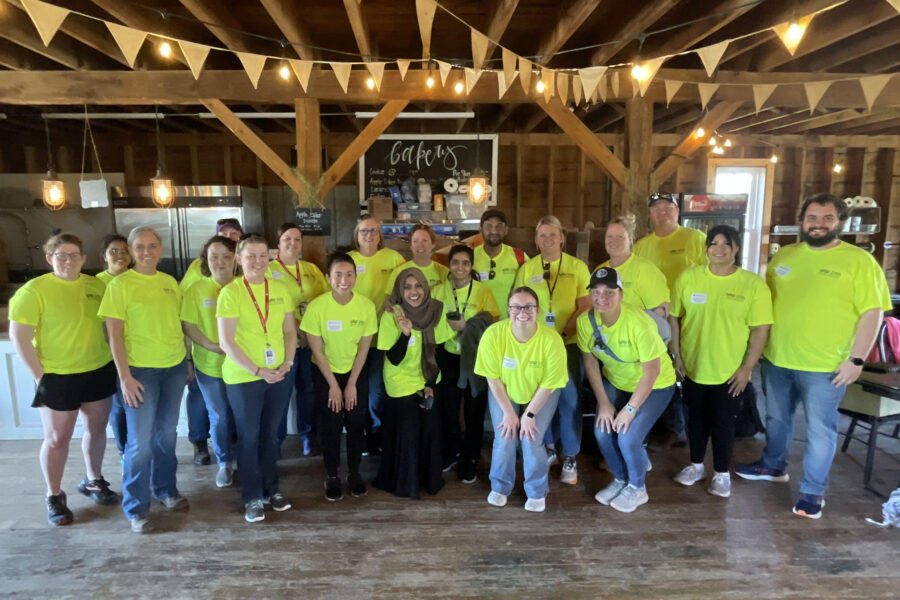More than 20 UNMC College of Public Health faculty, students and staff, led by Kristina Kintziger, PhD, and Sarah Elizabeth Scales, PhD, of the the UNMC Water, Climate and Health Program, were on hand May 16-18 to assist the Three Rivers Public Health Department with a rapid needs assessment.
Volunteers from several local health departments, UNMC and Nebraska Department of Health and Human Services went door-to-door in a roughly two-mile radius around the tornado path in Washington County to get residents’ responses to survey questions. The topics included how well the early warning system worked, physical and mental health impacts and how residents received information before, during and after the tornados.
Dr. Kintziger, associate professor in the UNMC Department of Environmental, Agricultural and Occupational Health, said the effort was directly related to UNMC’s mission to improve the health and well-being of fellow Nebraskans.
“We are here to support this effort on the front lines of public health,” she said. “This is boots-on-the-ground epidemiology. Our students get to see how the things they learn in a classroom really work in the world, in the community and to feel like they are making a difference.”
Jake Dunn, of Three Rivers Public Health Department, said the health department was pleased that its partnership with the college allowed the team to “really hit the ground running” on the rapid needs assessment of the Washington County community.
The college also will work with Douglas County on a similar effort this week, although that assessment will be conducted through the mail.
“Rapid needs assessments are crucial after disasters,” Dr. Kintziger said.
“The goal is to understand current and changing needs post-disaster in a community,” she said. “To know what the mental and physical health impacts are, as well. We know, fortunately, after this event in Nebraska, we had no deaths and few direct injuries. But that doesn’t mean that there aren’t other types of health concerns, such as injuries during cleanup or stress that can lead to mental health impacts.”
Dr. Kintziger added, “We want to understand what our community is experiencing. We also want to understand how prepared the community is and how we, as public health practitioners, along with emergency responders, can support the community in being more prepared because Nebraska is prone to natural hazards.
“And it is important that people understand how to get the information they need from our early warning systems and how to use that information to keep themselves safe.”
